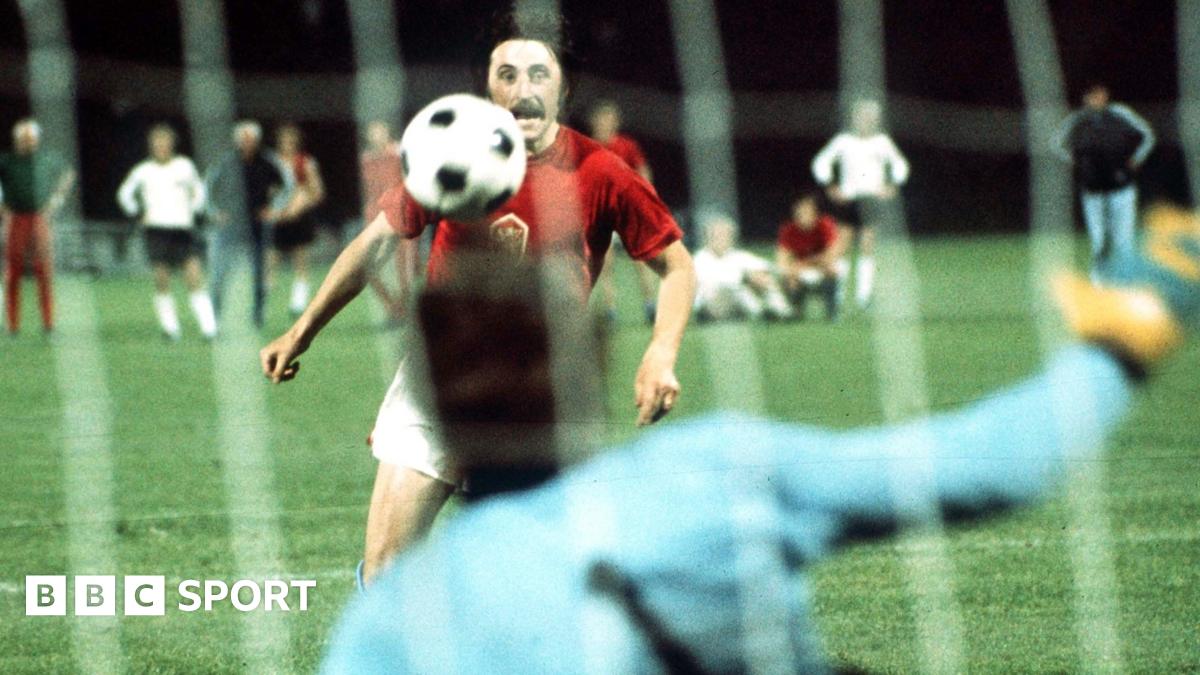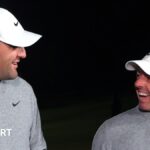Back home, Panenka was involved in another, almost daily, penalty shootout.
After training at his club Prague Bohemians, Panenka and goalkeeper Zdenek Hruska would stay behind to practice taking free kicks.
It was a very personal struggle. Panenka would have five penalties – he would score all five, Hruska would only save one. Whoever lost would buy their post-training beer or chocolate.
“I was always paying him,” Panenka says.
“So in the evenings I would think about how to beat him – that’s when I realized that when I was running the goalkeeper would wait for the last second and then gamble, diving to the left or right.
“I thought: ‘What if I take the ball almost straight down the middle of the goal?’
Panenka tried. He found that introducing another potential punishment and Hruska’s mental reluctance meant he was winning more, using less and still getting his post-training treatment.
It could stand there and remain an invisible piece of showboating. But Panenka discovered his new approach was much more than that. He had discovered a legitimate 12-yard technique.
Over the next few years, he tried it on bigger and bigger stages. First, in training, then in friendly matches and finally, a month before Euro 1976, against local rivals Dukla Prague in a competitive match.
Each time it worked and his confidence grew.
“I didn’t make a secret,” Panenka says.
“Here (Czechoslovakia) people were well aware of it.
“But in the west, in the top football countries nobody was interested in Czechoslovakian football at all.
“Maybe they were left with some results, but they didn’t watch our games.”
So, there was no scrawled cheat sheet or whispered instructions from Sepp Maier’s backroom analyst.
When the West German goalkeeper bent over his goal and focused on Panenka, he had only his mind to carry on.
Maier’s team-mate Uli Hoeness had fired the previous free-kick over the bar. It was the first time the penalty shootout was missed, after extra time ended with the teams tied at 2-2.
Instantly the stakes became sudden death and the sky above. If Panenka scored, West Germany was scored.
Panenka’s run was long and fast. He seemed intent, like Hoeness, on hitting his stride behind the ball.
Instead, for the most important kick of his life, he repeated his trusted trick. A quick dribble sent the ball flying into the middle of the goal. Panenka’s hand was up in celebration before hitting the net. Maier, frustrated and defeated, got back to his feet, but after a while he could watch Panenka in a terrifying way celebrating.





